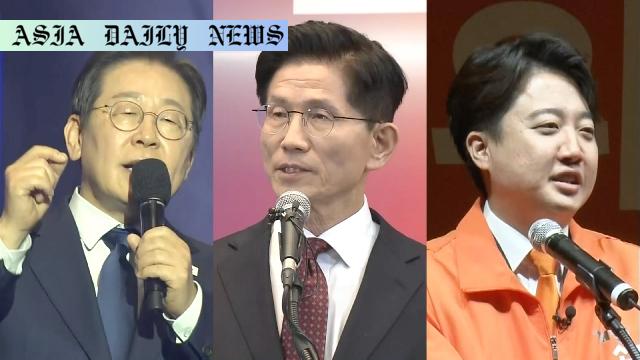South Korea Election: Opposition leader Lee Jae-myung leads with 51% support in the recent Gallup Korea poll.

South Korea Enters a Pivotal Presidential Election
South Korea is witnessing an electrifying lead-up to its presidential election, scheduled for June 3. A recent Gallup Korea survey reveals a significant shift in public favor towards opposition candidate Lee Jae-myung of the Democratic Party. Garnering 51% of the support, Lee has positioned himself as the frontrunner in this highly charged political race. The poll, conducted with 1,004 participants over three days, highlights substantial political dynamics in the region.
Opposition Candidate Lee Jae-myung Emerges as the Frontrunner
Lee Jae-myung, representing South Korea’s largest opposition party, has shown immense appeal among voters. As per the survey, his support stands at a compelling 51%, as voters cite his competence and promising leadership qualities. This marks a critical moment for the Democratic Party, considering the stronghold Lee appears to have over a significant fraction of South Korea’s electorate.
Conservative Candidates Fall Behind
While Lee celebrates a robust lead, the ruling People Power Party’s candidate, Kim Moon-soo, trails behind with just 29% of voter support. Meanwhile, Lee Jun-seok from the minor New Reform Party has garnered merely 8%. This divide within the conservative vote block has raised speculations about potential alliances between Kim and Lee Jun-seok. However, as things stand, there are no confirmed plans for either conservative candidate to withdraw in favor of a united campaign.
Key Influencing Factors and Undecided Voters
The survey further sheds light on the motivations behind voters’ choices. Supporters of Lee Jae-myung emphasize his ability to perform duties effectively and utilize his political skills to lead the country. On the other hand, Kim’s integrity and fairness have been focal points for his supporters. However, the political climate remains complex as almost half of the respondents without party affiliations have not committed to any candidate yet. This undecided faction could be instrumental in determining the final outcome.
Implications for South Korea’s Political Landscape
The results of this poll not only highlight current voter sentiments but also underscore the polarizing state of politics in South Korea. With Lee Jae-myung consolidating his lead, questions arise about the future of the ruling People Power Party and their ability to regain public trust. As the election date approaches, all eyes will be on whether conservative forces can unify or if Lee’s momentum remains unchallenged until the ballots are cast.
Commentary
Analyzing Lee Jae-myung’s Commanding Lead
The recent poll results showcasing opposition candidate Lee Jae-myung’s substantial lead signify a pivotal moment in South Korean politics. His ability to garner such widespread support highlights both his political acumen and a growing demand for change among the electorate. The emphasis on Lee’s competency and leadership by his supporters reflects a nationwide desire for a forward-thinking and efficient leader in a time of economic and political transformation.
Challenges for Conservative Candidates
On the other hand, the ruling People Power Party faces an uphill struggle as Kim Moon-soo lags far behind Lee. This signals potential dissatisfaction with the current ruling party’s policies and governance. The fragmented support for conservative candidates—with Lee Jun-seok also in the mix—exemplifies the challenges lying ahead for the right-wing bloc. The lack of a unified front only serves to weaken their chances against a strong and cohesive opposition candidate in Lee.
The Role of Undecided Voters
Undecided voters stand at the center of this election as they represent a sizeable portion of the electorate. Their lack of commitment to any candidate underscores a broader uncertainty in the political landscape. Winning their allegiance could be the ultimate game-changer for either side. Both Lee Jae-myung and his competitors will likely intensify their efforts to appeal to this critical demographic in the coming weeks.
Broader Implications for South Korea
This election comes at a juncture where South Korea faces multiple challenges, including economic recovery, diplomatic relations, and domestic reforms. The outcome will have profound repercussions for the nation’s trajectory. Lee’s current dominance in polls could reflect a broader rejection of the status quo and a readiness for bold, transformative leadership.


